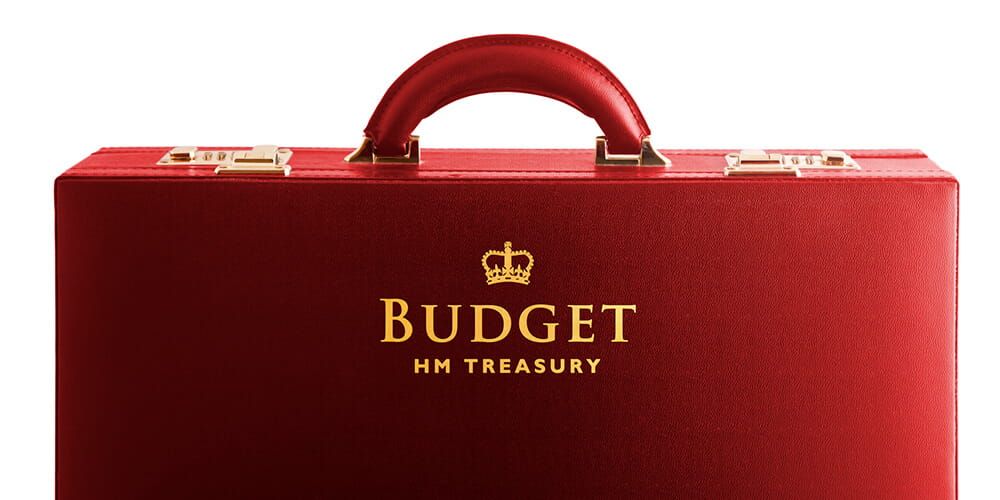Autumn Budget 2024: What are the key points?
Community

On Wednesday (30th October), Rachel Reeves, the new Chancellor of the Exchequer, delivered her first Budget speech under the Labour Government.
She had forewarned that the new Budget may be a difficult one due to the current economic situation in the UK, so it wasn’t a surprise that it was dominated by a raft of tax rises to better fund the UK’s public services.
To help you digest the Autumn Budget, we’ve rounded up the key takeaways below. So grab yourself a coffee and find out what the year ahead holds for your money.
How is the UK economy doing?
- Steady economic growth: The Office of Budget Responsibility predicts the UK economy will grow by 1.1% this year, 2% next year, and 1.8% in 2026. This should mean more jobs and opportunities, but it’s still a relatively slow pace of growth.
- Inflation cooling down: Inflation is expected to stick at 2.5% this year, rise to 2.6% next year, before dropping to 2.3% in 2026. This means prices won’t be rising as quickly, which is good news for everyone.
- Borrowing to invest: The Government’s plans will mean borrowing more money — £19.6 billion this year and around £32.3 billion each year over the next five years. This borrowing will be used to fund public services and investments in the future.
Personal taxes
- No changes to your paycheck: The same amount of income tax and National Insurance will be deducted from your wages. The rate of VAT (sales tax) will also be staying the same.
- Tax brackets to stay the same for a while: From 2028, the Government will adjust the tax brackets in line with inflation. This will help many people from paying a higher tax rate as their wages rise with inflation.
- Capital Gains tax is rising for non-residential property: If you make a profit selling assets other than residential property, you’ll pay more in Capital Gains tax. The rate is going up from 10% to 18% for basic tax band sellers, and from 20% to 24% for higher tax band sellers.
- No Capital Gains tax changes for selling residential property: If you sell a residential property, the Capital Gains tax rates on any profit stay the same (18% for basic tax band sellers and 24% for higher tax band sellers).
- Passing on your wealth: The amount you can pass on to your loved ones before they have to pay Inheritance tax will stay the same until 2030. Starting in 2027, any money left in your pension when you die will also be subject to the tax.
Wages, benefits and pensions
- A pay raise for many: The minimum wage is going up! If you’re over 21, you’ll see your hourly rate increase from £11.44 to £12.21 from April. Younger workers aged 18 to 20 will get a bigger boost, with their minimum wage going up to £10 per hour. This is the first step in a plan to eventually have the same minimum wage for all adults.
- Pensions going up: Good news for pensioners. Both the basic and new state pensions will increase by 4.1% next year. This is thanks to the “triple lock” which guarantees that pensions rise with inflation.
- More support for carers: If you’re a full-time carer, you might be able to get a Carer’s Allowance. The Government is making it easier to qualify for this allowance by increasing the amount you can earn while still being eligible from £151 to £195 a week.
Business taxes
- National Insurance contributions to go up: From April, businesses will pay a higher rate of National Insurance on employees’ salaries to fund public services. This rises to 15% on salaries above £5,000, and from the current 13.8% on salaries above £9,100.
- Smaller businesses to get help with National Insurance: The Employment Allowance, which lets them reduce their National Insurance bill, will increase from £5,000 to £10,500.
- Private equity rises: Private equity managers will see an increase in the tax they pay on profits from successful deals. This will go up from a maximum of 28% to 32% from April.
- Corporation tax to stay the same: The main rate of corporation tax, which larger businesses pay on their profits, will remain at 25% until the next election to help provide stability and encourage investment.
Transport
- Fuel duty freeze: Good news for drivers — the 5p cut in fuel duty on petrol and diesel will be kept for another year to keep costs down at the pump.
- Bus fares going up: If you use the bus outside of London and Greater Manchester, single fares will go up from £2 to £3 in January.
- Investing in rail: The Government will fund the HS2 high-speed rail line all the way to Euston station in central London, as well as the Transpennine rail upgrade between York and Manchester.
- Flying gets pricier: If you’re going away, be aware that Air Passenger Duty will go up in 2026. Short-haul flights rise by £2, while long-haul flights rise by £12.
- Smoother roads ahead: Potholes are a pain, so there’s an extra £500 million into fixing them in England next year.
- Encouraging electric cars: To encourage people to switch to electric vehicles, the Vehicle Excise Duty paid on petrol and diesel vehicles emitting more than 76g of CO2 per km will double in 2025/26.
Alcohol, sugary drinks, vapes and tobacco
- Vaping gets more expensive in 2026: From October 2026, there will be a new tax on vaping liquid. It’ll be a flat rate of £2.20 per 10ml, regardless of the nicotine strength.
- Tax on cigarettes and tobacco products to increase: Tax on tobacco will rise faster than inflation — an increase of 2% for general tobacco and 10% for hand rolling tobacco. This is to encourage people to quit and protect public health.
- Tax rise on pre-mixed drinks: The tax on alcoholic drinks that aren’t on tap (like bottles and cans) will go up, but there will be a small tax cut for draught beer and cider. This is designed to support pubs.
- Sugary drinks in the spotlight: The Government is reviewing whether to change the thresholds for the “sugar tax” on soft drinks, and they might even extend it to drinks with milk in them.
Housing
- Social housing rents: Rents for social housing will be allowed to increase faster than inflation. This will help housing providers with their costs, but it could make things tougher for tenants.
- Right to Buy discounts reduced: The discounts available to social housing tenants who want to buy their homes will be reduced.
- Second homes get pricier: Buying a second home is about to get more expensive in England and Northern Ireland. The Stamp Duty surcharge you pay on these purchases will go up from 3% to 5%.
- Stamp duty threshold lowered: The point at which you start paying this tax is dropping from £250,000 to £125,000. First-time buyers will also see the threshold drop, from £425,000 to £300,000.
- More affordable homes: The Government is putting an extra £500 million into building affordable homes — good news for those struggling to get on the property ladder.
Investment in public services
- More money for health and education: The NHS and schools in England will get a significant funding boost this year, with day-to-day spending going up by 4.7% in real terms. However, the increases will be smaller in the following years.
- Boost for defence: Defence spending will increase by £2.9 billion next year.
- Home Office cuts: The Home Office budget will shrink over the next two years in real terms as the Government expects to save money on the asylum system.
- Extra help for local councils: Local councils will get an extra £1.3 billion in funding next year. They’ll also be able to keep all the funds from Right to Buy sales, giving them more financial control.
Looking for more detail? The full Autumn Budget 2024 and supporting documents are available on the UK Government website.
